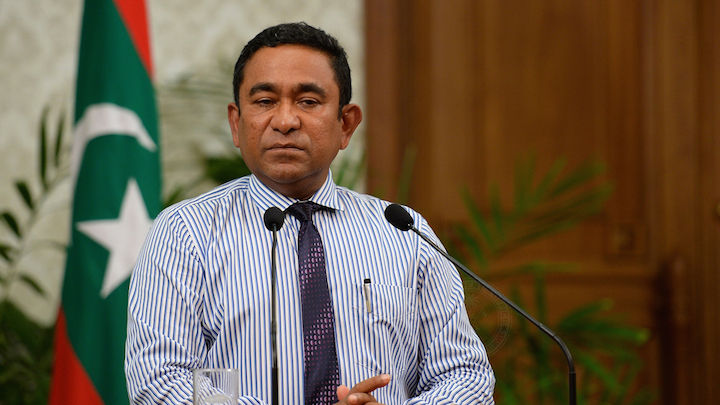Maldives government abuses anti-terror law to silence public officials
The government of President Abdulla Yameen of the Maldives continues to abuse an overbroad anti-terror law as a blunt-force tool to arbitrarily and indiscriminately silence perceived political threats to his regime, writes the ICJ’s Nikhil Narayan

28 Mar 2016, 09:00
The government of President Abdulla Yameen of the Maldives continues to abuse an overbroad anti-terror law as a blunt-force tool to arbitrarily and indiscriminately silence perceived political threats to his regime.
During a recent visit to the Maldives last month, I was alarmed by the numerous and increasing number of terrorism trials against public officials. While international attention has relaxed in recent months following former president Mohamed Nasheed’s medical leave to the UK pending appeal of his own terrorism conviction from last year, President Yameen’s government continues to use a deeply politicized criminal justice system to persecute anyone out of favour with the President, be they opposition party members, judges, even former cabinet members and erstwhile allies.
In October 2015, for instance, then-Vice President Ahmed Adeeb was arrested in connection with a suspected bomb blast on a boat carrying the President, even though a US FBI investigation was unable to conclude that the explosion was caused by a bomb. The then-VP was subsequently summarily impeached and soon thereafter charged with several counts of corruption and terrorism.
During a 15 February 2016 hearing, a terrorism charge based on an alleged firearm seen in the former VP’s residence in April 2015 was formally presented and disclosed to the defense for the first time, though the defense continues to be denied access to the evidence or witness list in this case on national security grounds.
Become a member
Get full access to our archive and personalise your experience.
Already a member?
Discussion
No comments yet. Be the first to share your thoughts!
No comments yet. Be the first to join the conversation!
Join the Conversation
Sign in to share your thoughts under an alias and take part in the discussion. Independent journalism thrives on open, respectful debate — your voice matters.




